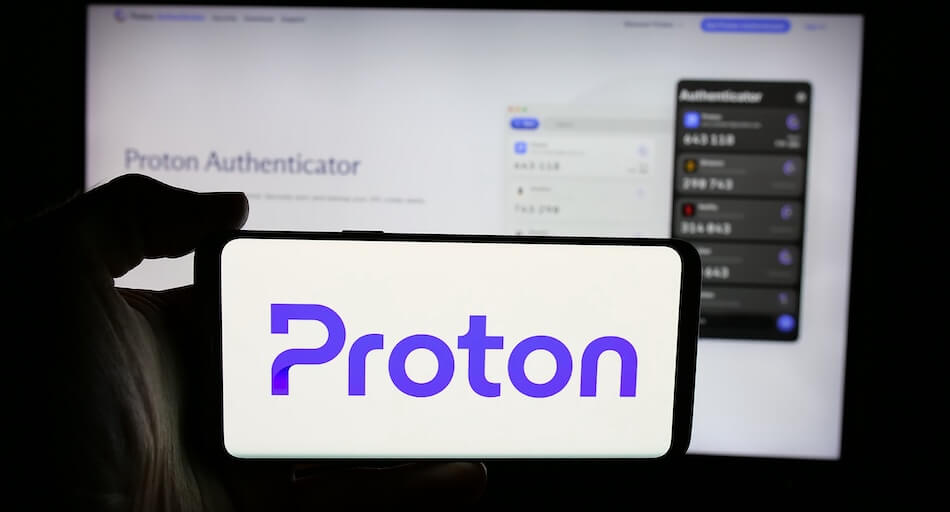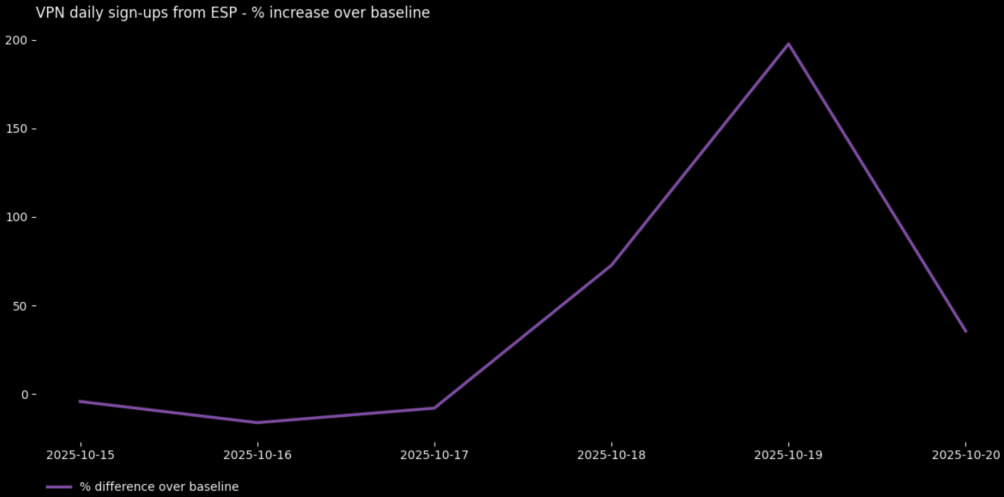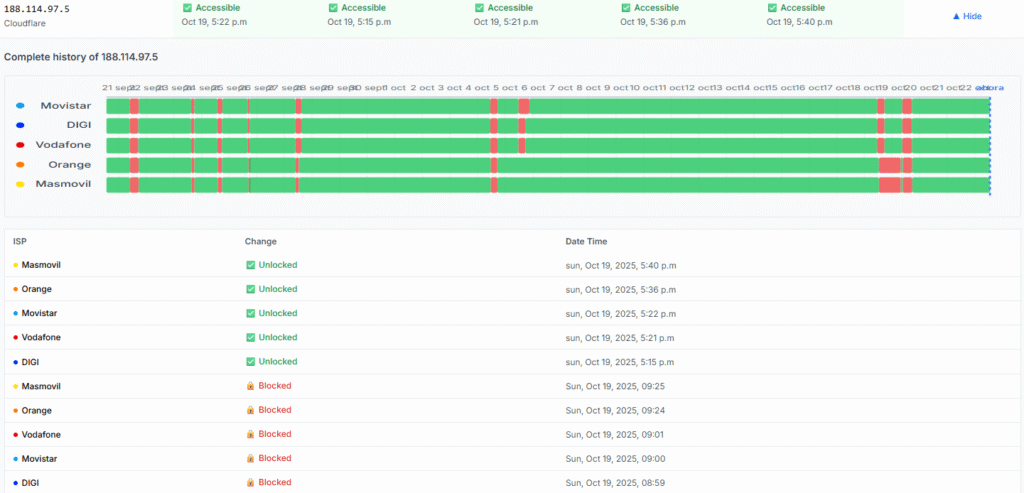
A court-sanctioned IP block targeting illegal football streams in Spain inadvertently disrupted vast portions of the internet last weekend, pushing Proton VPN signups up by 200% and cutting off access to legitimate websites and services.
The disruption began on October 18, 2025, when Spanish internet service providers (ISPs) initiated widespread blocks on Cloudflare IP addresses, an aggressive anti-piracy measure meant to prevent unauthorized La Liga streams.
According to Proton, the outage sparked a sharp increase in VPN demand, particularly on October 19, when user signups for its free VPN service in Spain doubled. Normal traffic resumed by October 20, once La Liga fixtures concluded and the IP blocks were lifted.

The block was confirmed by the internet monitoring site HayAhora.Futbol, which documented that major Spanish ISPs, including Movistar, Vodafone, and Orange, had restricted access to numerous Cloudflare-managed IPs. While the goal was to crack down on pirated football broadcasts, the collateral damage was extensive. Cloudflare’s infrastructure supports millions of websites, many of which were rendered inaccessible due to shared IP configurations commonly used in content delivery networks (CDNs).

Proton VPN
Cloudflare, a U.S.-based web infrastructure and security company, plays a central role in internet performance and availability worldwide. It offers distributed denial-of-service (DDoS) mitigation, secure socket layer (SSL) encryption, and caching services that accelerate content delivery. Because many sites rely on Cloudflare’s shared IP model, blocking even a single IP can inadvertently take down dozens, or even hundreds, of unrelated domains.
This isn’t the first time Spain has deployed broad network blocks in the name of anti-piracy. In March 2025, Cloudflare and cybersecurity group RootedCON challenged the practice in court, warning it would disrupt legitimate internet use.
One of the most visible casualties was Blue Protocol: Star Resonance, a newly released MMORPG. Spanish players found they couldn’t start the game unless connected to a VPN. The block hit during the game’s critical second weekend post-launch.
Proton criticized the actions as a form of overreach incompatible with democratic values and warned that similar future blocks could have chilling effects on internet freedom in Europe. While IP-based enforcement of piracy laws is not new, the situation in Spain shows the unintended consequences of blunt censorship in an increasingly interconnected web infrastructure.







version v4.3.4 ProtonVPN.Client I don’t know what happened but the dns of google and quad9 appear 8.8.8.8, 8.8.4.4, 9.9.9.11
Let’s see if someone reports this problem. they put it on purpose or they missed it…..